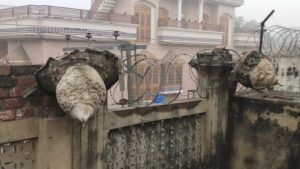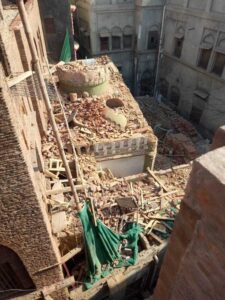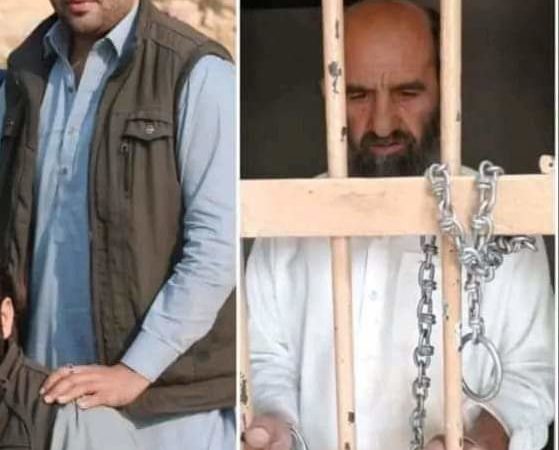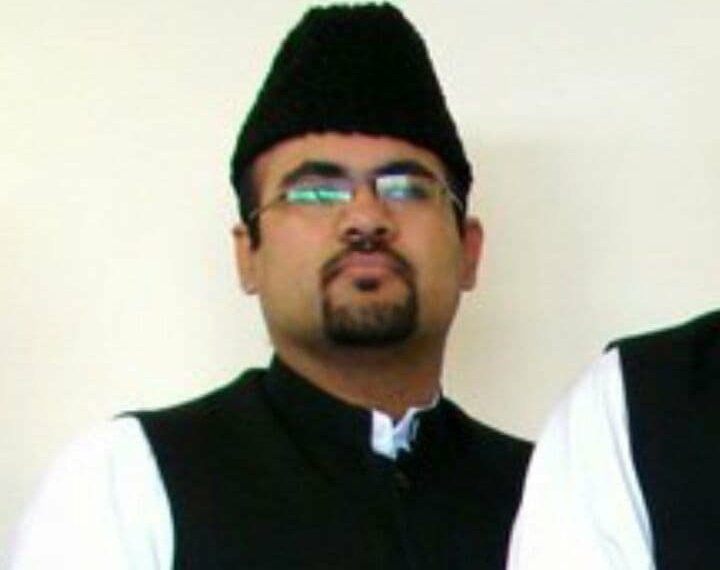Ongoing spate of defacing Ahmadi worship places

Apart from the ongoing campaign to curtail religious liberty of Ahmadis in Pakistan, a worst and mobilized spate of desecrating Ahmadi mosques is ongoing with defacing at least seven of their worship places in less than three months or so in different parts of the country.
The incidents of defacing Ahmadi mosques took place all over the country from Nankana Sahib to Wazirabad, from Faisalabad to Sheikhupura and Toba Tek Singh with the recent incident that took place in Karachi on Wednesday.
Normally religious minorities in Pakistan face discrimination and intolerance for practicing their faith differently from the majority Muslims. Ahmadis situation is totally opposite. They face threats, attacks, targeted killings, mob violence and desecration of their worship places and cemeteries for practicing religion similar to the majority. Different sects of Islam are against each other in Pakistan but in case of Ahmadis they collaborate with each other.

Most of these incidents took place with the help of the state institution. Some mosques were defaced with the help of the Police while some others were demolished under the shadow of the court orders.
Last day, Tehrik-e-Labbaik Pakistan activists attacked Ahmadi mosque in Karachi razing its minarets with huge crowd celebrating the demolition with chants and slogans. On January 26, the state ordered Ahmadis to remove minarets of their worship place in Toba Tek Singh to make it look like not a religious place.
On January 22, some miscreants desecrated and razed around 200 graves of Ahmadis in Faisalabad. A day earlier, Muslims of Sialkot stopped burial of an Ahmadi woman in a common graveyard.
On January 18, vandals desecrated two minarets of an Ahmadi mosque in Karachi, Martin Road. On January 10, in Wazirabad with the help of police, anti Ahmadis razed minarets of an Ahmadi mosque in a bid to differentiate it from the mosques of the ‘constitutional Muslims’. Few weeks ago, Mehrab of an Ahmadi mosque was demolished in Nankana Sahib. On December 7 last year, minarets of an Ahmadi place of worship were removed in Gujranwala.

When it comes to Ahmadis, Pakistan does not have a good record of protecting their fundamental rights including right to freedom of religion, rather it criminalizes for Ahmadis to look like Ahmadis let alone allowing them to practice religion, openly or even secretly.
Pakistan has made it part of its legal codes for Ahmadis not to practice Islam, act like Muslims, look like Muslims or to have religious symbols like those of the ‘constitutional Muslims.’
Under Section 298 (B)(1d) of Pakistan Penal Code, any Ahmadi who calls his place of worship as “Masjid” shall be punished with imprisonment to three years and shall also be liable to fine. Section 289 (C) of the PPC, says any Ahmadis who poses himself as a Muslim or calls to his faith as Islam or preaches or propagates his faith or invites others to accept his faith shall be punished with imprisonment of three years and shall also be liable to fine.
The above mentioned controversial sections of the legal code are self-explanatory and contrary to the Constitution of the Islamic Republic of Pakistan. Article 20 of the Constitution says every citizen shall have the right to profess, practice and propagate his religion and every religious denomination and every sect thereof shall have the right to establish, maintain and manage its religious institutions.
The constitutional provision of religious liberty is deliberately sidestepped and the provisions of the PPC relating to Ahmadis are given priority both at public place and at the legal corridors, the places where Ahmadi religious liberty is curtailed the most.
It is justified to say that these sections of the PPC provide tacit support of anti Ahmadi elements. Normally religious minorities in Pakistan face discrimination and intolerance for practicing their faith differently from the majority Muslims. Ahmadis situation is totally opposite. They face threats, attacks, targeted killings, mob violence and desecration of their worship places and cemeteries for practicing religion similar to the majority. Different sects of Islam are against each other in Pakistan but in case of Ahmadis they collaborate with each other.
With the rise of Tehrik-e-Labbaik Pakistan, a Sunni fanatic religio-political party, hardships for Ahmadis are on the rise. With the rise of desecration incidents of Ahmadi worship places in Pakistan, it is justified to say that this is a mobilized move which should be investigated thoroughly. Desecration of one mosque should be investigated by connecting it to such other incidents. If the missing dots are connected it would be evident that the same few faces are behind all these incidents. If the sate opt to overlook these barbaric incidents and deliberately adopts its usual policy of denial, it could do so but at the cost of alienation itself from the rest of the world like Islamic Emirate of Afghanistan where it already supported, logistically and morally, establishing Taliban rule.
Religion Observer believes in a diversity of opinions. This piece reflects the views of the author and does not necessarily represent those of the RO.
The writer studied Religion, Culture & Global Justice and is based in Canada. He can be reached by Twitter: @RanaTanver



